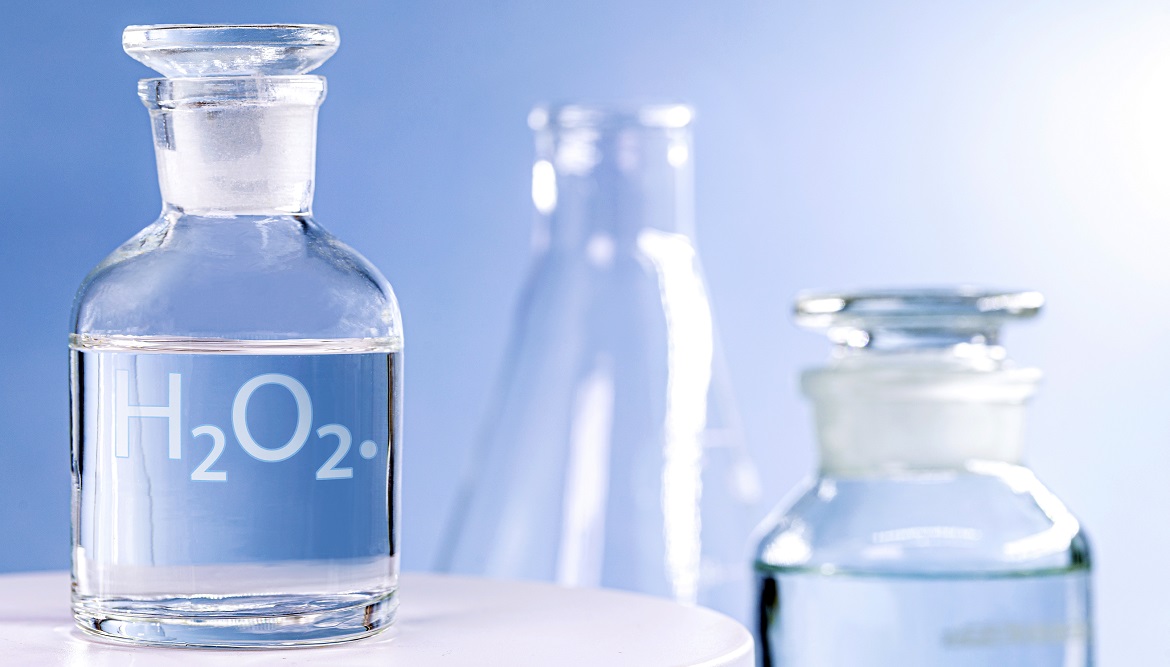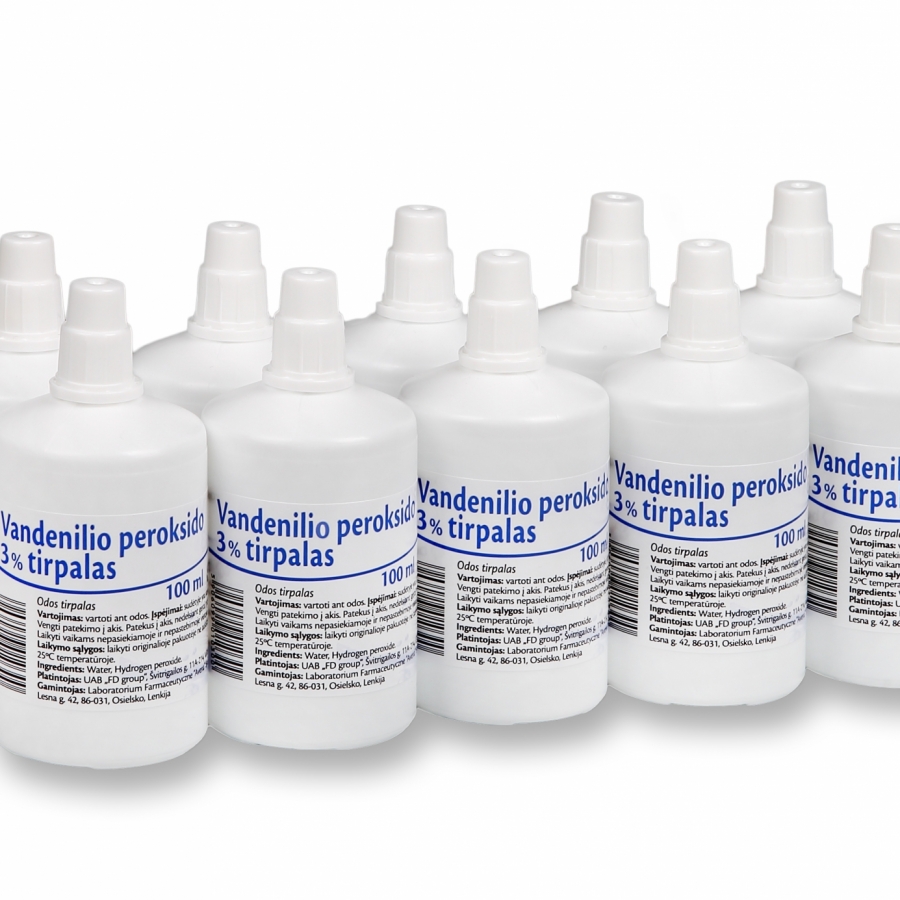
Hydrogen peroxide (H₂O₂) is valued in medicine for its strong oxidative properties, which enable it to act as an antiseptic and disinfectant. Hydrogen peroxide is a simple yet interesting compound with a wide range of applications, from medicine to industry.
Properties of hydrogen peroxide
Chemical composition and physical properties
- Molecular composition: The hydrogen peroxide molecule consists of two hydrogen (H) and two oxygen (O) atoms (H₂O₂).
- Physical properties: Hydrogen peroxide is a colorless, slightly viscous liquid with a metallic taste and is more viscous than water.
- Decomposition: Hydrogen peroxide decomposes into water (H₂O) and oxygen (O₂), especially when exposed to light or heat.
Chemical and biological properties
- Oxidative properties: Hydrogen peroxide is a strong oxidizer and can donate oxygen to other substances.
- Disinfectant action: Hydrogen peroxide kills bacteria, viruses, and fungi by damaging their cell walls.
Stability and reactivity
- Concentration and stability: Hydrogen peroxide is sold in various concentrations, with higher concentrations being more reactive and unstable.
- Storage requirements: Hydrogen peroxide should be stored in dark, cool places to prevent decomposition.
Safety and environmental aspects
- Absence of toxic byproducts: Upon decomposition, hydrogen peroxide leaves no toxic byproducts, making it more environmentally friendly than other chemicals.
- Safety precautions: Higher concentrations of hydrogen peroxide can cause skin and eye irritation.
Interaction with other substances
- Reactions with organic materials: Hydrogen peroxide can interact with various organic materials, sometimes causing rapid and even explosive reactions.
- Bleaching action: Due to its oxidative properties, hydrogen peroxide can also act as a bleaching agent, lightening or whitening materials it interacts with.
Hydrogen peroxide and its use in the laboratory
- Analytical chemistry: Hydrogen peroxide is used as a reagent in various analytical chemistry methodologies.
- Biological research: Hydrogen peroxide is an important factor in studying cellular oxidative stress and other biological processes.
Hydrogen peroxide in medicine
Wound treatment and antiseptic
Hydrogen peroxide is often used for wound cleaning and infection prevention, but there is debate about its effectiveness and potential impact on healthy cells.
Disinfection and sterilization
Hydrogen peroxide is used in hospitals and other healthcare facilities as a disinfectant and sterilant.
Therapeutic uses
Oxygen therapy
The potential use of hydrogen peroxide in therapeutic applications, especially in oxygen therapy. Additionally, it can participate in Fenton or Fenton-type reactions, which generate more toxic hydroxyl radicals in chemodynamic therapy (CDT). "Fenton" or "Fenton-type reactions" are chemistry terms related to a certain type of oxidation reactions promoted by iron ions. This reaction occurs between hydrogen peroxide (H₂O₂) and iron (Fe²⁺) ions, reacting to create free radicals, including the highly reactive hydroxyl radical (·OH). These radicals are very effective and can react with many organic and inorganic compounds.
The Fenton reaction is important both in environmental science and industry, especially in pollution control and water treatment areas, as it can effectively decompose toxic organic pollutants. It is also important in biochemistry, as this reaction occurs in living organisms and can contribute to cellular damage and aging processes, reacting with DNA, proteins, and other cell parts.
However, it is important to note that the American Cancer Society has stated that there is no scientific evidence that hydrogen peroxide is safe.
Safety aspects
- Skin irritation and burns: High concentrations of hydrogen peroxide can cause skin and eye irritation.
- Risk of fire and explosion: Highly concentrated hydrogen peroxide solutions can be highly flammable.
Industrial use
- Bleaching agent: Hydrogen peroxide is used as a bleaching agent in the paper and textile industry.
Cosmetics
- Hair dyes: Due to its bleaching properties, hydrogen peroxide is used in cosmetic products.
Conclusion
Hydrogen peroxide is a versatile compound with many advantages and useful applications, but it also requires caution during its use. Correct and safe use of hydrogen peroxide can be highly beneficial in various areas, but it is essential to understand and consider the associated risks. It is important to follow safety protocols and use appropriate hydrogen peroxide concentrations to avoid health and safety risks.
Sources:
- Scientific databases
- Healthcare websites: WebMD, Mayo Clinic, and World Health Organization (WHO)
- Safety Data Sheets (SDS)
# vandenilio peroksidas


